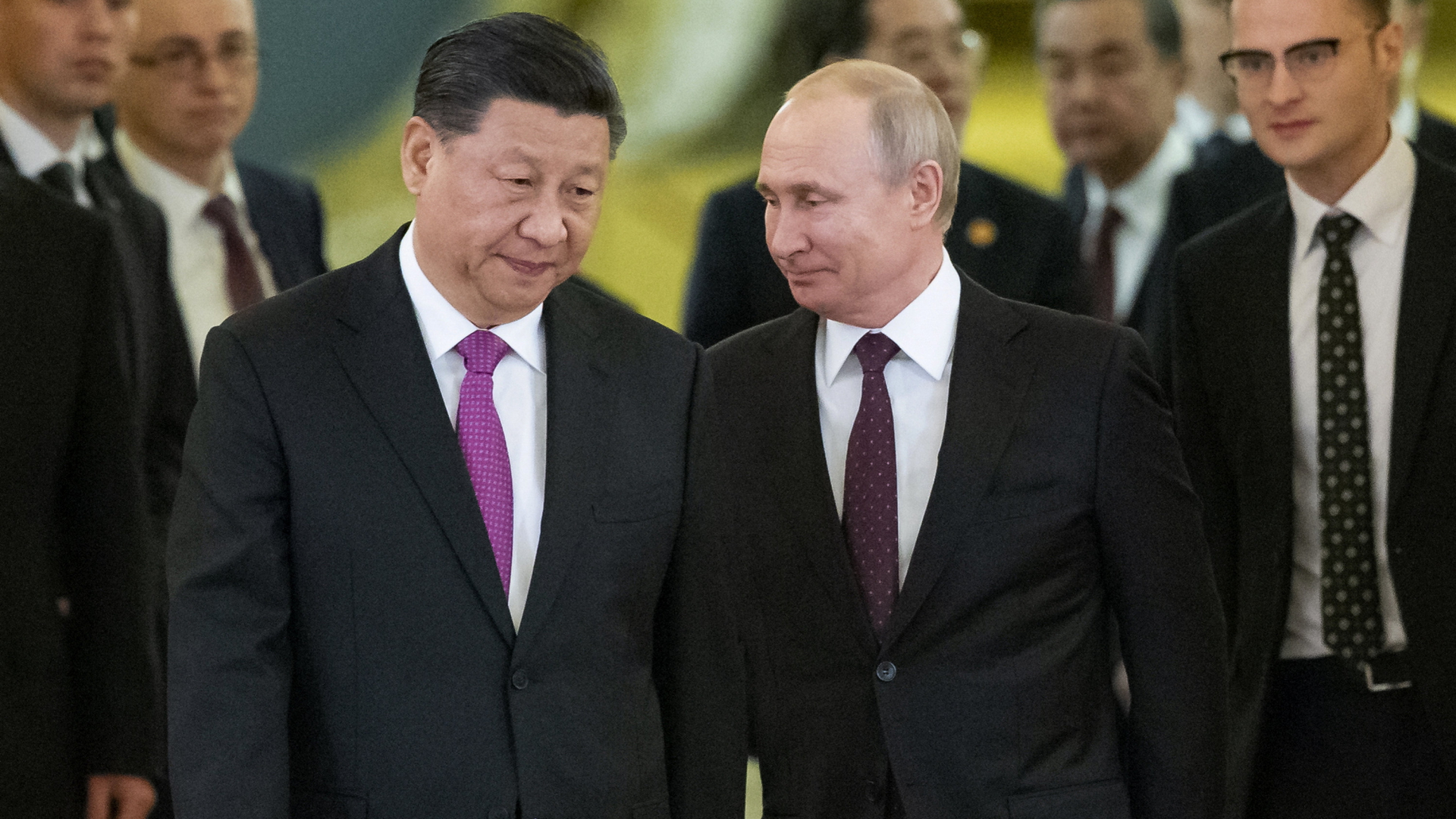Status: 02/23/2022 09:18 a.m
–
–
–
At the Olympic Games, President Xi had demonstratively sided with President Putin. But in the Russia-Ukraine conflict, Beijing remains vague – especially economically, there is too much at stake for China.
By Benjamin Eyssel, ARD Studio Beijing
–
–
–
–
It was not to be expected that the Chinese leadership would adopt a clear position after Russia’s recent actions. Instead – as before – general calls to give priority to diplomacy and to avoid military escalation.
Benjamin Eyssel
ARD-Studio Peking
–
–
–
–
–
Chinese State and Party leadership spokesman Wang Wenbin said: “China will continue to keep in touch with all parties involved to work towards a solution. The situation in Ukraine is deteriorating. China is once again urging all parties to exercise restraint to enforce the principle of security, to defuse the situation and to resolve the conflicts through de-escalation and negotiations.”
China is interested in stability
Russia’s actions put the Chinese state and party leadership in a difficult position. Ukraine is an important partner in China’s “Belt and Road” infrastructure project, also known as the “New Silk Road” in German.
Chinese state-owned companies have invested in Ukraine – including in the agricultural and energy sectors. China is Ukraine’s most important trading partner. Among other things, Ukraine supplies China with large quantities of agricultural products such as grain, mainly corn. A military conflict could disrupt supply chains and drive up prices.
Sanctions would also affect China
In addition, US and European Union sanctions against Russia are also likely to have a negative impact on China. Rising commodity prices could slow down the Chinese economy, which is already growing less strongly than hoped due to the corona pandemic. Russia is one of the largest oil and gas exporters in the world. China is heavily dependent on raw material imports.
Among other things, the increasing pressure from democratically governed states, above all from the USA, has recently brought Russia and China closer together. Head of state and party leader Xi Jinping received Russian President Vladimir Putin at the beginning of February as part of the Winter Olympics in Beijing, Chinese state television reported extensively.
The two then sat in the grandstand at the opening ceremony, together with many heads of state from other autocratically governed countries and dictatorships.
The meeting was mainly symbolic, Jakub Jakóbowski analyses. He is a China expert at the state-funded Polish institute Center for Eastern Studies (OSW) in Warsaw. Common strategic interests have existed for some time. For the first time, however, this “informal alliance” between China and Russia was presented at the highest level.
China against NATO enlargement
“China is now openly supporting Putin’s demands for supposed security. Since December, the People’s Republic has repeatedly expressed understanding for these demands. And then China spoke out against an expansion of NATO. The context is clear. Russia is making the biggest political attempt in decades to rebuild the European security architecture.”
Jakóbowski sees parallels with the annexation of Crimea eight years ago. Even then there was sympathy for the Russian approach: “China did not officially approve or recognize the annexation. But when you talk to the Chinese side, you often hear that Crimea used to belong to Russia. And that the war only started because the US and the EU incited democratic revolutions,” said Jakóbowski.
“The difference today is: Now the whole thing is taking place at the highest level and at a very special time: Russia is taking on the West and needs diplomatic support.”
However, China is in a quandary: if the government in Beijing sides completely with Russia and openly supports a war in Ukraine, the state and party leadership risks even worse relations with the European Union and the USA. China conducts trade with America and the EU, which is several times larger than trade with Russia. Despite all the disputes.
China has been trying to become less dependent on foreign technology for years. But the People’s Republic is still heavily dependent on imports of high technology, especially from the USA, including in the areas of smartphones, pharmaceuticals, semiconductors and aviation.
Reluctance expected from China
Observers therefore expect that China will not speak out directly in favor of military action in Ukraine, despite the open display of unity with Russia – against the USA, against NATO expansion and against democratic revolutions. Furthermore, it is just as unlikely that the state and party leadership in Beijing will officially condemn Russia’s behavior.
Russia’s actions in Ukraine – China in a bind
Benjamin Eyssel, ARD Beijing, 23.2.2022 · 08:34
–
–
–

/data/photo/2022/02/23/6215f4fdb623e.jpg)
:quality(80)/cloudfront-us-east-1.images.arcpublishing.com/lanacionar/FLE6PM56SBD35NGPCCYTM6WULY.jpg)